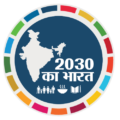In the pursuit of a world marked by enduring peace and prosperity, the International Day of Living Together in Peace Justice And Strong Institution serves as a poignant reminder of the challenges we face in achieving this lofty goal. Today, as we reflect on the imperative need for global harmony, it is evident that the complexity of maintaining peaceful societies requires a multifaceted approach rooted in recognizing and respecting individual differences.
The Foundation of Peace: Peace Justice And Strong Institution and the UN’s Mission
At the core of the United Nations’ mission lies the commitment to promoting peaceful, just, and inclusive societies for sustainable development. SDG 16 Peace Justice And Strong Institution, an integral part of the 2030 Agenda for Sustainable Development encapsulates this commitment. For nearly eight decades, the UN has championed multilateralism as a means to overcome global challenges and differences, making the pursuit of peace more relevant and crucial than ever.
Mobilizing Global Efforts: The Role of the UN Sustainable Development Solutions Network (SDSN)
With a staggering quarter of the global population residing in conflict-affected countries, collaboration among governments, civil society, and communities becomes paramount. The UN SDSN emerges as a pivotal player, mobilizing global scientific and technological expertise to implement the 17 SDGs, with a particular focus on accelerating progress on SDG 16. This network exemplifies the power of international collaboration in addressing the complexities of global Peace Justice And Strong Institution.
Strengthening Multilateralism: A Call to Action
International non-profit organizations, as exemplified by the SDSN, play a crucial role as conveners in supporting and strengthening multilateralism. Noteworthy is the coordination of The Lancet COVID-19 Commission, a testament to the power of collaboration in responding effectively to global crises. The commission’s final report advocates for actions to bolster multilateralism, emphasizing its role in defending against future threats and achieving sustainable development.
Harnessing Research for Peacebuilding
The international research community, through rigorous exploration of conflict and peace, contributes significantly to peace building efforts. A key emphasis should be placed on measuring abstract concepts like peace and well-being, as these metrics guide decision-making and public policies. Initiatives such as the World Happiness Report play a vital role in demonstrating the interconnectedness of happiness, well-being, and societal development.
Education as a Catalyst for Peace Justice And Strong Institution
Access to quality education emerges as a critical factor in achieving peace and fostering effective democracies. The SDG Academy, an initiative addressing the educational gap, creates and curates free and open resources on sustainable development. Courses such as Ethics in Action and Environmental Security and Sustaining Peace empower individuals to think differently about peace and justice, offering practical avenues for supporting strong institutions and equality.
Building Effective and Accountable Institutions
To tackle contemporary challenges, from geopolitical conflicts to the climate emergency, we must build institutions that support multilateral efforts for peace. The SDG Goals and existing multilateral frameworks provide a blueprint for addressing global issues. Nelson Mandela’s wisdom resonates, reminding us that peace is not merely the absence of conflict but the creation of an environment where all can flourish, irrespective of differences.
Prioritizing Equity and Human Dignity
peaceful, inclusive, and sustainable future, international organizations and stakeholders must prioritize equity and human dignity. These universal values, as articulated by Nelson Mandela, stand as the bedrock of a world where diversity is celebrated, and every individual can thrive.
In conclusion, achieving SDG 16 Peace Justice And Strong Institution requires a concerted effort from individuals, communities, and nations worldwide. By embracing the principles of multilateralism, rigorous research, education, and the establishment of effective institutions, we pave the way for a future where peace is not just an aspiration but a tangible reality for all.
